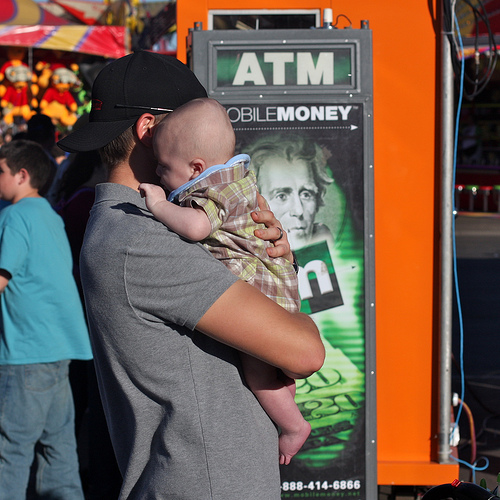You may have noticed that President Obama recently started talking about middle-out economics—the idea that a thriving economy doesn’t start with the ultra-rich or with big corporations but, instead, with ensuring financial security for regular Americans.
But Obama didn’t coin the phrase middle-out economics. That honor goes to Seattle thinkers Eric Liu and Nick Hanauer, authors of The Gardens of Democracy and The True Patriot, and co-founders of the True Patriot Network. Liu and Hanauer present compelling evidence that the real job creators in the American economy are ordinary working families. When wealth concentrates only at the very top, ordinary folks have less to spend, and businesses have fewer customers. But when more Americans have a chance to attain financial security, our economy gets stronger.
Liu and Hanauer argue passionately for broad prosperity for America’s middle: “middle-out economics,” they write, “demands a systemic policy focus on the skills, capacities, and income of the middle class.”
But sadly, inequality has gotten so bad that the term “middle class” doesn’t resonate the way it used to. Many of us who once felt like a part of the middle class no longer feel financially secure. And some who never gained access to middle class security now feel like there’s no chance they’ll ever get there, that the system is rigged against them. Yet if we design the economy to nurture the people who could join the ranks of the middle class, we might make some progress adding meaning to an outdated term. That means investing in people and our communities: in education, infrastructure, energy, and innovation, and putting in place policies that provide health security, retirement security, and ladders of opportunity for everybody.
To get all of that rolling, Liu and Hanauer insist that “it is time to kill the myth of trickle-down economics—and to replace it with the true story of middle-out economics.”
Here’s how to get started:
Talking Points: Middle-Out Economics
Debunk the supply-side lie: Trickle-down economics is upside down: it’s been great for the ultra-rich and for big corporations but a disaster for everyone else and the economy.
Offer a winning alternative—invest in people and communities to grow a stronger economy: Our economy thrives when we invest in ladders of opportunity and financial security for everybody: good jobs with good wages, top-notch education, affordable health care, and secure retirement.
Boil economic policy choices down to a simple question: Is it going to keep wealth only at the top, or does it serve everybody and grow a thriving middle class?










Bill Basford
Stop calling us consumers! I consider that to be an insult. Call us citizens, or residents, or just plain people, but stop calling us consumers!
John Wurm
I can understand Mr. Basford’s objection to be called a consumer. It is a demeaning term suggesting brainlessness. In defense of Ms. Fahey, however, I would point out she presents an economic argument and not a political one. To refer to the object of her concern as “citizens” would miss the point. The message is one of social justice for the human condition.
Anna Fahey
Bill, as a general rule I agree with you. 100%. And I see how it is an insult.
Here, however, they’re making the argument that the real job creators are not the 1% but the rest of us—when we have the financial wherewithal and sense of economic security to be active consumers. The point is that people—regular, middle of the road, families—are the job creators (by being consumers).
Thanks for your comment. Your point is a good one.
Hal Hushbeck
I’m probably not thinking this deep enough, but with a more fairly shared ability to consume, how do we reach our goal of sustainability? We tend to compartmentalize the need to reduce our human footprint from our desire to share the wealth based on current ecosystem resource monopolization.
Maintaining a pervasive awareness of the two concepts together is a challenge when we are daily confronted with the realities of unsustainable consumer demand.